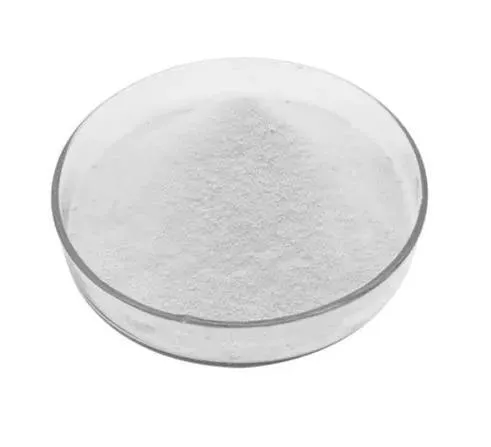Warning: Undefined array key "title" in /home/www/wwwroot/HTML/www.exportstart.com/wp-content/themes/1198/header.php on line 6
Warning: Undefined array key "file" in /home/www/wwwroot/HTML/www.exportstart.com/wp-content/themes/1198/header.php on line 7
Warning: Undefined array key "title" in /home/www/wwwroot/HTML/www.exportstart.com/wp-content/themes/1198/header.php on line 7
Warning: Undefined array key "title" in /home/www/wwwroot/HTML/www.exportstart.com/wp-content/themes/1198/header.php on line 7
- Afrikaans
- Albanian
- Amharic
- Arabic
- Armenian
- Azerbaijani
- Basque
- Belarusian
- Bengali
- Bosnian
- Bulgarian
- Catalan
- Cebuano
- China
- China (Taiwan)
- Corsican
- Croatian
- Czech
- Danish
- Dutch
- English
- Esperanto
- Estonian
- Finnish
- French
- Frisian
- Galician
- Georgian
- German
- Greek
- Gujarati
- Haitian Creole
- hausa
- hawaiian
- Hebrew
- Hindi
- Miao
- Hungarian
- Icelandic
- igbo
- Indonesian
- irish
- Italian
- Japanese
- Javanese
- Kannada
- kazakh
- Khmer
- Rwandese
- Korean
- Kurdish
- Kyrgyz
- Lao
- Latin
- Latvian
- Lithuanian
- Luxembourgish
- Macedonian
- Malgashi
- Malay
- Malayalam
- Maltese
- Maori
- Marathi
- Mongolian
- Myanmar
- Nepali
- Norwegian
- Norwegian
- Occitan
- Pashto
- Persian
- Polish
- Portuguese
- Punjabi
- Romanian
- Russian
- Samoan
- Scottish Gaelic
- Serbian
- Sesotho
- Shona
- Sindhi
- Sinhala
- Slovak
- Slovenian
- Somali
- Spanish
- Sundanese
- Swahili
- Swedish
- Tagalog
- Tajik
- Tamil
- Tatar
- Telugu
- Thai
- Turkish
- Turkmen
- Ukrainian
- Urdu
- Uighur
- Uzbek
- Vietnamese
- Welsh
- Bantu
- Yiddish
- Yoruba
- Zulu
جولائی . 30, 2024 20:28 Back to list
Exploring the Composition and Components of Aspartame A Detailed Ingredient Breakdown
Understanding Aspartame Ingredients and Safety
Aspartame is one of the most widely used artificial sweeteners in the food and beverage industry. It is approximately 200 times sweeter than sucrose (table sugar) and contains very few calories, making it a popular choice for those looking to reduce their sugar intake while still enjoying sweet flavors. This article provides an overview of aspartame, its ingredients, and the discussions surrounding its safety.
What is Aspartame?
Aspartame is a low-calorie sweetener that was discovered in 1965 by chemist James M. Schlatter. It is a dipeptide made from two amino acids phenylalanine and aspartic acid, along with a methanol group. When consumed, aspartame breaks down into these components, which are naturally found in many protein-containing foods. This breakdown is crucial to understanding both its sweetening power and the nutritional aspects of aspartame.
Ingredients of Aspartame
The primary ingredients involved in the production of aspartame include
1. Phenylalanine An essential amino acid that plays a critical role in the production of neurotransmitters. However, individuals with phenylketonuria (PKU), a genetic disorder, must limit their intake of phenylalanine as it can lead to serious health issues.
2. Aspartic Acid Another amino acid that is not only a building block for proteins but also functions as a neurotransmitter in the brain. It is naturally present in many food sources, including meat, fish, eggs, dairy products, and some vegetables.
3. Methanol A simple alcohol that occurs naturally in fruits and vegetables. While methanol can be toxic in large quantities, the amounts produced as a byproduct of aspartame metabolism are considered safe and are further diluted with the overall diet.
aspartame ingredients list

Typically, these ingredients undergo a chemical reaction to form aspartame, which is then powdered and made into various sweetener products, often marketed under brand names like Equal and NutraSweet.
Safety Assessments
The safety of aspartame has been extensively studied since its introduction. Regulatory agencies worldwide, including the U.S. Food and Drug Administration (FDA), the European Food Safety Authority (EFSA), and the World Health Organization (WHO), have deemed it safe for consumption within established daily intake limits.
However, controversy exists, fueled by varying research findings and public perception. Some studies have suggested potential links between aspartame and health issues ranging from headaches to more serious conditions. The scientific consensus, however, indicates that most people can consume aspartame safely. The key, as with many food additives, lies in moderation.
Aspartame in Our Diet
Aspartame is commonly found in a wide range of products, including diet sodas, sugar-free gum, sugar substitutes, and various low-calorie or diet foods. It is essential for consumers to read ingredient labels, especially for those with PKU or individuals who may be sensitive to artificial sweeteners.
In recent years, there has been a trend toward more natural sweeteners such as stevia and monk fruit, which has led to increased scrutiny of synthetic sweeteners like aspartame. Still, it remains a staple in many households, especially among those managing their weight or blood sugar levels.
Conclusion
Aspartame is a well-researched artificial sweetener that offers a low-calorie alternative to sugar. Composed of amino acids and methanol, it is recognized as safe for the general population, barring specific health conditions. As with any food ingredient, being informed and mindful of one’s diet is crucial. Understanding aspartame and its ingredients can empower consumers to make educated choices about their nutrition and overall health.
Latest news
-
Certifications for Vegetarian and Xanthan Gum Vegetarian
NewsJun.17,2025
-
Sustainability Trends Reshaping the SLES N70 Market
NewsJun.17,2025
-
Propylene Glycol Use in Vaccines: Balancing Function and Perception
NewsJun.17,2025
-
Petroleum Jelly in Skincare: Balancing Benefits and Backlash
NewsJun.17,2025
-
Energy Price Volatility and Ripple Effect on Caprolactam Markets
NewsJun.17,2025
-
Spectroscopic Techniques for Adipic Acid Molecular Weight
NewsJun.17,2025

